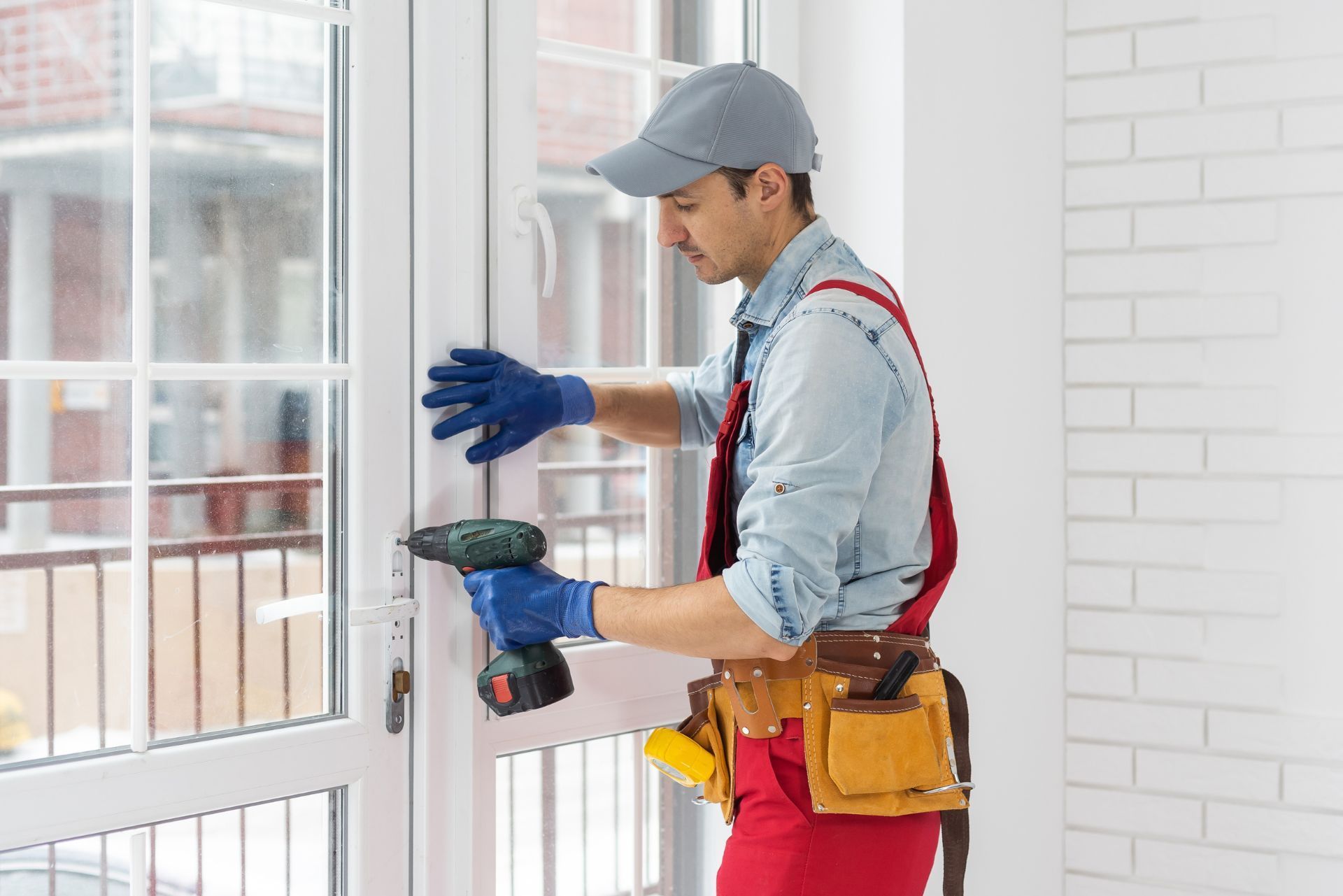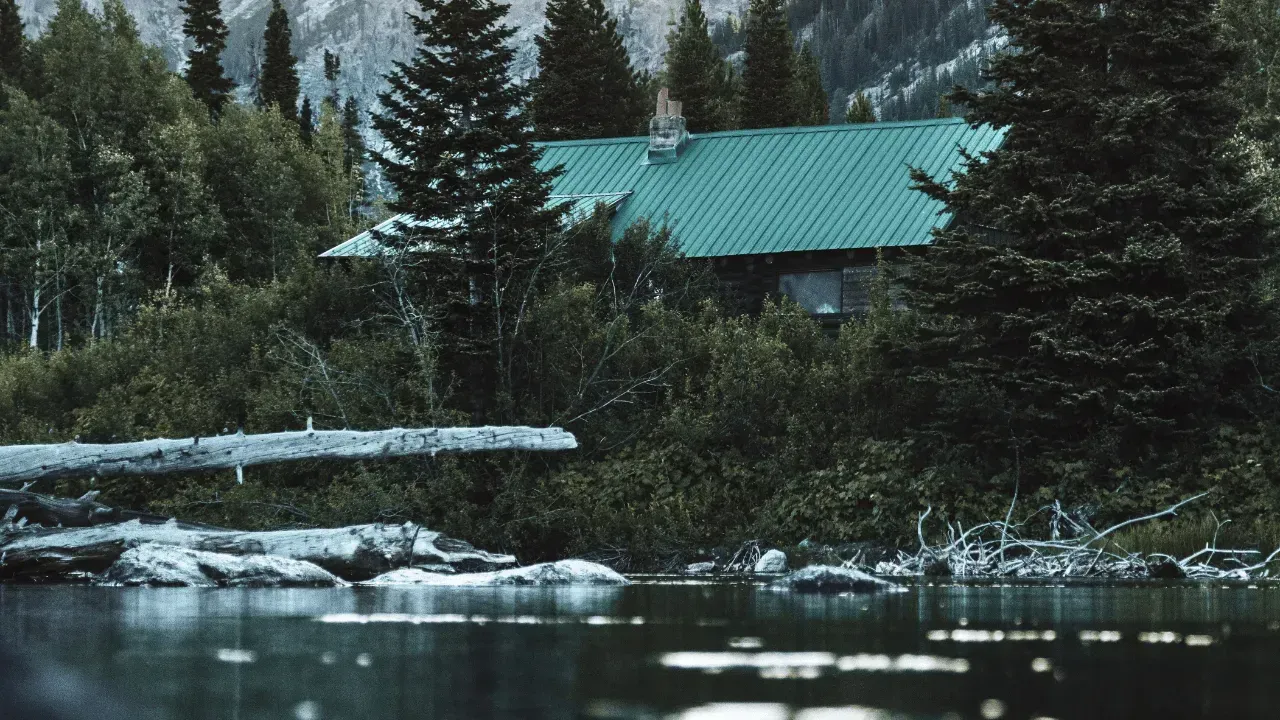Colorado Window and Door Installer Insurance

8:30am - 5:00pm Mon-Fri
We'll Reply in 15min*
Index
Why Colorado’s Insurance Costs Are Higher for Contractors
Essential Insurance Coverages for Window and Door Installers
How Colorado’s New Energy Star Requirements Affect Insurance
Rising Insurance Premiums: What Window and Door Installers Need to Know
Cost Factors Specific to Window and Door Installer Insurance in Colorado
Tips for Window and Door Installers to Manage Insurance Costs
What Window and Door Installers Should Remember
Contact Us
Phone
303-421-5123
Location
9035 Wadsworth Parkway
Suite 2730B
Westminster, CO 80021
Installing windows and doors in Colorado comes with its own set of challenges and risks. From unpredictable weather to legal complexities, contractors in this field must navigate a landscape that affects both their operational safety and insurance costs. Understanding the nuances of insurance coverage and the factors driving premiums in Colorado can help window and door installers protect their businesses effectively without overpaying.
Colorado’s homeowners insurance market is notably expensive, with average premiums around 35% higher than the national average. This context influences the insurance environment for contractors working on residential structures, especially as new regulations come into effect. For example, a recent
law effective January 2026 mandates Energy Star-rated doors and windows for residential buildings up to three stories. This law will impact installation practices and potentially insurance considerations for installers.
Why Colorado’s Insurance Costs Are Higher for Contractors
Colorado’s insurance premiums are among the highest in the nation, and this extends to contractors, including window and door installers. The average homeowners insurance premium in the state is $1,640, which is 35% above the national average of $1,213. This increase is driven by several factors that also influence contractor insurance costs.
One major contributor is the state’s exposure to natural hazards. Colorado ranks second nationally for hail damage claims, which significantly raises risk for both homeowners and contractors working on exterior installations. Hailstorms can cause costly damage to windows and doors, leading to more frequent claims and higher premiums. The state’s “highly litigious climate” also plays a role, as legal claims related to property damage or faulty installations tend to be more common here than in many other states.
These factors combine to create a challenging insurance market. According to industry experts, “People are experiencing a rise in cost over almost every facet of owning a home. Everything’s gone up,” reflecting the broader inflationary pressures and risk environment that contractors face daily. Additionally, the increasing frequency of extreme weather events, such as wildfires and heavy snowfall, adds to the unpredictability of insurance claims, further complicating the landscape for contractors who must navigate these risks while trying to maintain competitive pricing.
Market Concentration and Its Impact
The Colorado homeowners insurance market is highly concentrated, with the top 10 insurers controlling 88.3% of the market. This limited competition can reduce pricing flexibility and innovation in coverage options. For window and door installers, this means fewer choices and potentially higher premiums when seeking general liability or commercial property insurance.
Contractors should be aware that this concentration can also affect claims handling and policy terms. Working with a knowledgeable insurance broker who understands the local market dynamics is critical to securing the best possible coverage at a reasonable price. Furthermore, contractors may benefit from exploring alternative insurance models, such as captives or self-insurance pools, which can provide more tailored coverage solutions and potentially lower costs. Engaging in risk management practices, such as regular training and safety audits, can also help mitigate risks and may lead to more favorable insurance terms over time.

Essential Insurance Coverages for Window and Door Installers
Window and door installation involves physical labor, use of heavy equipment, and working at heights, all of which carry risks. Proper insurance coverage protects against financial losses from accidents, property damage, or lawsuits. Here are the key types of insurance every installer should consider:
General Liability Insurance
This is the cornerstone of contractor insurance. It covers bodily injury, property damage, and personal injury claims that may arise during installation work. For example, if a window falls and damages a client’s property or injures someone, general liability insurance helps cover legal fees and settlements.
Given Colorado’s litigious environment, this coverage is especially important. The state’s high rate of insurance claims and lawsuits means installers without adequate liability protection face significant financial risk. Additionally, general liability insurance can also cover costs associated with advertising injuries, such as claims of slander or copyright infringement, which can be particularly relevant for businesses that engage in extensive marketing efforts.
Workers’ Compensation Insurance
Colorado law requires most employers to carry workers’ compensation insurance. This coverage pays for medical expenses and lost wages if an employee is injured on the job. Window and door installation involves risks like falls, cuts, and strains, making workers’ comp essential for protecting both employees and the business. Moreover, having this insurance not only ensures compliance with state laws but also fosters a safer work environment, as it encourages employers to implement safety measures and training programs to reduce workplace injuries.
Commercial Auto Insurance
Many installers use company vehicles to transport tools and materials. Commercial auto insurance covers accidents involving these vehicles, which personal auto policies typically exclude. This coverage protects against liability and physical damage claims related to business use of vehicles. Furthermore, it can also provide coverage for rented or borrowed vehicles, which is useful for installers who may need to use different vehicles depending on the job requirements or project locations.
Tools and Equipment Coverage
Specialized tools and equipment used for installations can be costly to replace. This coverage protects against theft, loss, or damage to tools, helping installers avoid unexpected out-of-pocket expenses. In addition to covering the physical tools, this insurance can also extend to equipment that is rented or leased, ensuring that installers are protected even when they do not own the equipment outright. This is particularly beneficial in an industry where the latest technology and tools can significantly impact efficiency and quality of work.
Professional Liability Insurance
Also known as errors and omissions insurance, this protects against claims arising from faulty workmanship or design errors. While not always required, it can be valuable in a state like Colorado where insurance payouts have increased significantly in recent years due to claims related to property damage. This type of insurance not only safeguards installers from financial loss but also enhances their credibility in the eyes of clients, as it demonstrates a commitment to quality and accountability in their work. Furthermore, it can provide peace of mind, allowing installers to focus on their craft without the constant worry of potential legal repercussions from dissatisfied customers.
How Colorado’s New Energy Star Requirements Affect Insurance
Starting January 2026, Colorado will require all residential buildings up to three stories to install Energy Star-rated doors and windows. This regulation aims to improve energy efficiency and reduce environmental impact but also affects installers’ insurance considerations.
Energy Star products often come with higher upfront costs and specific installation standards. Improper installation can lead to warranty issues or claims for damage related to energy inefficiency or water intrusion. Insurers may view these installations as higher risk until contractors demonstrate consistent compliance with the new standards.
Installers should ensure their insurance policies cover potential claims related to these new requirements. This might include updating professional liability coverage or adding endorsements for specialized work. Staying informed about regulatory changes and adjusting coverage accordingly will be vital for managing risk.
Moreover, the shift towards Energy Star-rated products reflects a broader trend in the construction industry, where sustainability is becoming a key selling point. Homeowners are increasingly aware of the benefits of energy-efficient installations, not only in terms of utility savings but also in enhancing property value. As a result, installers may find themselves in a competitive market where demonstrating expertise in Energy Star products can lead to increased business opportunities. This demand for specialized knowledge may necessitate additional training and certification for contractors, further impacting insurance considerations as they seek to align their skills with evolving market expectations.
Additionally, the implications of these new requirements extend beyond just installers. Homeowners will need to navigate the potential for increased insurance premiums as insurers reassess risk factors associated with Energy Star installations. This could lead to a greater emphasis on thorough documentation and quality assurance processes throughout the installation phase. Insurers may also begin to offer incentives for homeowners who choose Energy Star products, recognizing the long-term benefits of energy efficiency and reduced claims related to environmental damage. As this landscape evolves, both installers and homeowners will need to collaborate closely to ensure compliance while maximizing the advantages of these new regulations.
Rising Insurance Premiums: What Window and Door Installers Need to Know
Insurance premiums in Colorado have been climbing rapidly. Between January 2019 and October 2022, homeowners insurance premiums increased by 51.7%, averaging 11.5% annually. This trend impacts contractors indirectly because higher homeowner premiums often translate into increased scrutiny of contractor practices and higher liability exposure.
In addition, a 2023 analysis by the Colorado Division of Insurance found that payouts have increased, causing insurers to lose money on premiums collected. This loss leads to insurers raising rates or tightening underwriting standards. For window and door installers, this means higher costs for liability and commercial policies.
Contractors should budget for these rising costs and consider risk management strategies to keep premiums in check. This could include investing in safety training, maintaining proper licensing, and documenting compliance with new regulations like the Energy Star mandate. Furthermore, staying informed about the latest industry trends and potential risks can help contractors anticipate changes in the insurance landscape, allowing them to adjust their business practices accordingly.
Underinsurance Risks Highlighted by Recent Disasters
The 2021 Marshall Fire was a stark reminder of the importance of adequate insurance coverage. A 2025 report from Colorado State University revealed that 74% of homeowners affected were underinsured, with 36% severely underinsured, covering less than 75% of replacement costs. This underinsurance ripple effect influences contractors as well.
If homeowners lack sufficient coverage, disputes over repair costs or liability claims can become more frequent and complicated. Installers may face delayed payments or increased litigation risks. Ensuring clear contracts and verifying client insurance coverage can help mitigate these challenges. Additionally, contractors might consider offering guidance to homeowners on the importance of comprehensive insurance policies, which could foster trust and strengthen client relationships. By educating clients about the potential pitfalls of underinsurance, contractors not only protect their own interests but also empower homeowners to make informed decisions about their coverage needs.

Cost Factors Specific to Window and Door Installer Insurance in Colorado
Several factors influence the cost of insurance for window and door installers in Colorado. Understanding these can help contractors find the best coverage at a fair price.
Business Size and Revenue
Larger businesses with higher revenues typically pay more for insurance due to increased exposure. However, they may also qualify for volume discounts or package policies that reduce overall costs.
Claims History
A history of frequent or severe claims can drive premiums higher. Insurers view past claims as indicators of future risk, so maintaining a clean record is crucial.
Coverage Limits and Deductibles
Higher coverage limits increase premiums but provide better protection. Choosing appropriate deductibles can balance upfront costs with out-of-pocket expenses in the event of a claim.
Location and Weather Risks
Installers working in areas prone to hail or severe weather may face higher premiums. Colorado’s ranking as second in the nation for hail-damage claims directly affects insurance pricing in these regions.
Compliance with Safety and Regulatory Standards
Adhering to state regulations, such as the upcoming Energy Star requirements, and implementing safety protocols can lower risk and potentially reduce premiums.
Tips for Window and Door Installers to Manage Insurance Costs
While insurance costs in Colorado are rising, installers can take steps to control expenses without sacrificing coverage quality.
- Shop Around: Compare quotes from multiple insurers to find competitive rates. Use brokers familiar with Colorado’s market.
- Bundle Policies: Combining general liability, commercial auto, and workers’ comp can lead to discounts.
- Invest in Safety: Training employees and following best practices reduces accidents and claims.
- Maintain Good Records: Document compliance with regulations and safety measures to demonstrate reduced risk.
- Review Coverage Annually: Adjust policies as business needs change to avoid paying for unnecessary coverage.
Being proactive about insurance not only protects the business but also builds trust with clients who expect professionalism and reliability.
What Window and Door Installers Should Remember
Colorado’s insurance environment is complex and evolving. Rising premiums, regulatory changes, and natural hazard risks create challenges for window and door installers. Understanding the key insurance coverages and factors affecting costs is essential for maintaining a resilient business.
Staying informed about market trends and legal requirements, such as the state’s high insurance premiums and the Energy Star window and door mandates, helps installers plan better. Partnering with knowledgeable insurance professionals can ensure coverage fits the unique risks of this trade.
Ultimately, managing insurance costs while securing adequate protection requires a balanced approach. Contractors who prioritize risk management, maintain compliance, and choose coverage wisely will be better positioned to thrive in Colorado’s demanding market.
Frequently Asked Questions
Q: What types of insurance are mandatory for window and door installers in Colorado?
A: Workers’ compensation is required for most employers. General liability is not legally mandatory but strongly recommended. Commercial auto insurance is required if business vehicles are used.
Q: How does Colorado’s hail risk affect my insurance premiums?
A: Colorado ranks second nationally for hail damage claims, which increases insurance costs for contractors working on exterior installations like windows and doors.
Q: Will the new Energy Star requirements increase my insurance costs?
A: Possibly. New regulations may raise risks related to installation errors or warranty claims, so insurers might adjust premiums accordingly.
Q: How can I reduce my insurance premiums as a window and door installer?
A: Shop around, bundle policies, invest in safety training, maintain good records, and review coverage regularly to avoid overpaying.
Q: What should I do if a client is underinsured?
A: Verify client insurance before starting work and include clear contract terms to manage liability and payment risks.
Q: Does Colorado’s insurance market concentration affect my options?
A: Yes, the top 10 insurers hold most of the market share, which can limit competition and pricing flexibility. Working with a broker can help find the best deals.
Q: Are there any special insurance considerations for commercial versus residential installations?
A: Commercial projects may require higher coverage limits and different policy types. Always discuss your specific work scope with your insurer.




